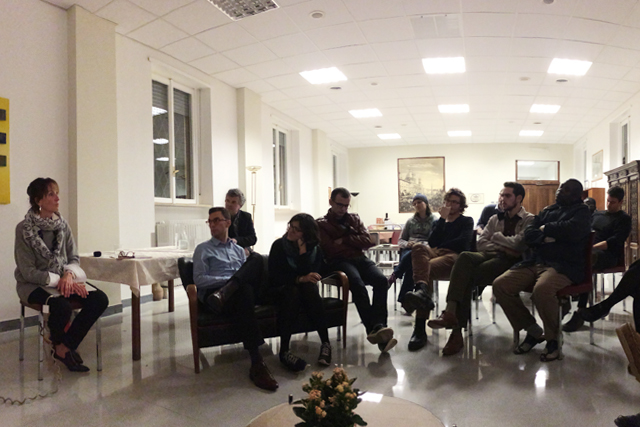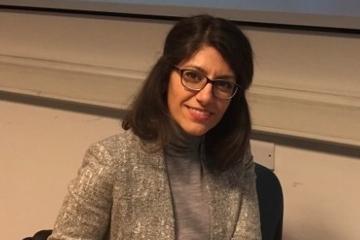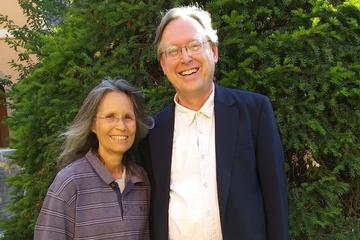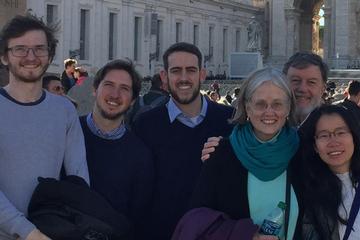
By Samantha Lin
In December, we welcomed resident scholar Tamara Sonn, who holds the Hamad Bin Khalifa Al-Thani Chair in the History of Islam at Georgetown University's Alaweed Bin Talal Center for Muslim-Christian Understanding.
While in Rome, Professor Sonn gave an intensive course at the Pontifical Institute for Arabic and Islamic Studies (PISAI) while also being an active member of The Lay Centre. She led a lively discussion on Islamophobia in the Western world at The Lay Centre's second Interfaith Café.
We sat down with Professor Sonn to get to know a little more about her and her work in Islamic history and in fighting Islamophobia.
What inspired you to study Islam?
There are two answers. The short answer is that my first master’s degree was in Medieval philosophy, 13th-century metaphysics, which is all based on Aristotle. Working through 13th-century metaphysics, I realized there were numerous references to Muslim philosophers. Why did Muslim philosophers figure so highly? The answer is that European philosophers gained access to their Aristotelian base through Arabic translations. They didn’t have access directly to the Greek. I discovered that the classical Greek texts had lain in oblivion for centuries in Egyptian libraries until Muslim conquests when they were discovered. The Muslims saw value in them, translated them into Syriac and then into Arabic, from which the European Latin translations come. The professors who were teaching me at the time at the Pontifical Institute of Medieval Studies at the University of Toronto said they needed a student to specialize in Islamic studies to figure out to what extent the European philosophers were influenced by the Muslim thinkers. I had the opportunity to study in Jordan and found, to my shock, that I was horribly ignorant of Islam in general and specifically of the Islamic heritage of European cultures. So I decided to start all over again in Islamic studies.
What do you hope for the future of Muslim-Christian dialogue?
Recognition of common humanity! That’s the short answer. Recognition of commonality. Islam teaches that the monotheisms are a single tradition. I think that is something Jews and Christians can learn from Muslims -- recognizing that we have far more in common. All monotheisms are founded on belief in a single Divinity who intervenes in human history and who sends messages periodically. The messages are all the same but the interpretations are different. There is a profound metaphysical truth there that we all need to contemplate; we need to share our experiences, rather than compete in intellectual claims. It makes more sense to me to compete as the Quran says [Quran 5:48] in demonstrating our commitment to the single creator by struggling to do the creator’s will. In other words, to “compete in good works.”
What brought you to The Lay Centre?
Georgetown University established a memorandum of understanding with PISAI about three years ago to do a faculty exchange. Father Thomas Michel was the first exchange faculty and, by a stroke of miraculous luck, here I am! I happen to be on sabbatical this semester, and so Dr. John Borelli, special assistant for Catholic identity and dialogue to Georgetown President John J. DeGioia, was so kind as to devise a special format for the faculty exchange: instead of a full year or full semester, to have an intensive three-week course during the month of December.
During her stay in Rome, Professor Sonn urged The Lay Centre residents to see the humanity of “the other” and encouraged the aspect of The Lay Centre's mission that focuses on interreligious dialogue.
Professor Sonn said she is hopeful for the future, which she said begins in environments, such as The Lay Centre.
"You just have to hold onto that hope: that by studying other religions, one day human beings will recognize each other’s humanity," she said.


